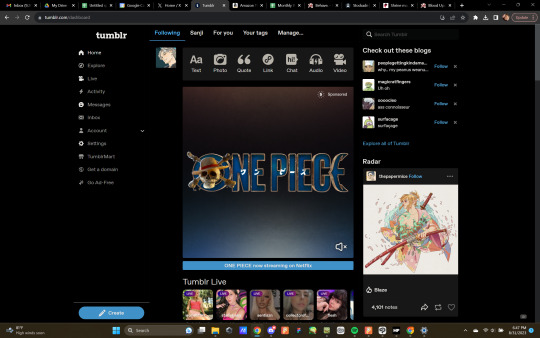#Site hierarchy
Explore tagged Tumblr posts
Text
Why Website Structure Matters: SEO & Usability Guide 2025
Learn why having a well-defined website structure is crucial for SEO and user experience. Discover tips on site architecture, internal linking, cornerstone content, and how to keep your site organized. Why Your Website Needs a Defined Structure: The Ultimate Guide to Site Architecture, SEO, and Usability A website without structure is like a library without a catalog: chaotic, confusing, and…
#breadcrumbs#content organization#content strategy#contextual links#cornerstone content#internal linking#landing pages#SEO best practices#SEO optimization#SEO site structure#site architecture#site hierarchy#structured website#taxonomies#user-friendly website#website layout#website navigation#website structure#website usability#Yoast SEO
0 notes
Text









hierarchy icons | like or reblog if you save
#twitter icons#twitter layouts#icons#female icons#female#site model icons#kdrama icons#hierarchy#hierarchy icons#roh jeong eui#lee chaemin#jung jaei#kang ha#kim rian#kim jaewon#ji hye won#yoon hera#lee won jung#lee woojin
138 notes
·
View notes
Text









#girls icons#icons#twitter icons#female icons#ji hyewon#ji hye won#icons ji hyewon#ji hyewon icons#ji hye won icons#chi haewon icons#icons chi haewon#chi haewon#chi hae won#haezy___#hierarchy cast#hierarchy kdrama#kdrama icons#doramas icons#korean actresses icons#actresses icons#actress icons#icons actress#icons actresses#dorama moodboard#dorama layouts#kdrama moodboard#kdrama layouts#korean drama icons#asian actresses icons#site model icons
58 notes
·
View notes
Text
You see the real difference between people raised catholic and adult catholic converts is that for adult converts catholicism is an actual set of beliefs about the world whereas for people raised catholic it's more of an immutable character flaw
#introspection#like i think the christian god probably isn't real and i don't respect the authority of the pope or the church hierarchy very much#but i still call myself a catholic b/c its ingrained into my personality at this point#using this site a lot as a teenager made that worse not better
7 notes
·
View notes
Note
where do the names io/onisarashi come from if you don't mind me asking?
i used to have an oc named io (a long time ago, when i was 11-12) and then when i was picking an online name i stole it for myself.
onisarashi is just the name of a higurashi side arc and i'm, in actuality, quite sad that it's become my "online name" because i have no connection to it. i've been wanting to change my online handles to waxwing but i have been for whatever reason hesitant to do it, maybe i should go for it in the new year, hm? i already made a new header for my site and all
thank you for the question :-)
#i will never change my tumblr url though because i started using the site in 2014 and thus still have some silly connection to the idea of a#'canon url'#like i used to be so self conscious about whether i had a 'good' url. i think both with age and people leaving/coming back that same#hierarchy of urls doesn't exist to the same extent
41 notes
·
View notes
Text

yippieeeeee
#tani's personal shit#trying to keep myself to Two wips at the time on this site (4thewords) so I can actually Focus on them yknow#bc juggling Five wips with no hierarchy or order writing bits and pieces of one one day and bits of other another was Impossible @_@#you never get anything done that way#hmmm now im wondering which should be upgraded to this site.... 👁👁#//edit whoops its solar eclipse 🤭 I desperately need more alan n barry
2 notes
·
View notes
Note
Venting anon
I’m not sending this because you think he has a PD, I’m sending this because i want to explain why he does not and is still a terrible person nevertheless
…ok, actually, I wrote it like a month ago right after intense arguing with a person who was adamant on him being a psychopath using this arguments (like “he killed people”) and I wanted a confirmation from some popular account that this arguments are bad. It was kinda cringe, now that i look at it
Thanks for writing back and explaining, and thanks for being more coherent this time. Part of why I replied the way I did the first time around was because I barely understood what you were trying to say. Here, then, is my genuine opinion on this subject.
Not everyone who kills people has a personality disorder. And, much more critically, the overwhelming majority of people with personality disorders are not murderers. From a purely statistical standpoint: P(A|B) ≠ P(B|A).
There is an argument to be made that Light has a PD -- though NPD makes more sense to me than ASPD, if that was what was meant by 'psychopath'. But the argument for that has nothing to do with what he's done: rather, it includes things like him having a really fragile ego (see: "you think I'm evil? I am justice! I protect the innocent and those who fear evil! I am the one who will become the god of a new world that everyone desires!" said in response to, literally, one single word of criticism), a sense of grandiosity and self-importance (expressed as a de-facto assumption that his own morality is the only one that matters), an extremely surface-level understanding of what 'normal' teenagers act like, and the way he so clearly bases his entire sense of self-worth on the praise he gets for his school grades.
Whether or not you believe the statement "Light is a terrible person" is a separate query, which is a lot more subjective, and has more to do with your morality than his actions. A pure utilitarian would see the (IRL unrealistic, but canon) outcome of his actions (that is, reducing crime and stopping wars), run some numbers, and call him a good person. Many other people would look at the sheer body-count and call him irredeemably evil; still others would say the same thing due to his motivations. I'm not endorsing any of these arguments, btw, I'm just saying they exist.
"Light Yagami is a psychopath (=has a PD) because he kills people" is indeed a bad argument in many ways, but to be honest, the biggest flaw I see with it is actually the way it stigmatizes people with PDs. Cluster B patients have more than enough stigma to deal with from all the people armchair-diagnosing their abusers with narcissistic PD or their overly-attached ex-girlfirends with borderline PD. They don't need people armchair-diagnosing their fandom's resident murderer with antisocial PD.
Ultimately, however much we as fans care about him, Light Yagami is a fictional character. His crimes are likewise fictional. But people with cluster B disorders are real. And every time somebody armchair-diagnoses a villainous character with a commonly-demonized mental illness, I (with my special interest in psychology) die a little inside.
#'light is a bad person' takes a backseat to 'personality disorders do not make you evil' in my hierarchy of important topics to argue about#venting anon#light yagami#death note#death note meta#site note: i find it funny that you consider ME a 'popular account' anon#i mean thank you. but also. ???
6 notes
·
View notes
Text
Can someone please inform this webbed site that the people who want to see the live action One Piece already know about it, and there's no reason my entire screen should just be... One Piece (+ the eyesore that is Tumblr Live).
Also do not need the special character tab, thank you.

The UX designer in me has been losing their mind for the past several weeks here, and this is not helping, haaaa.
#tumblr looking like the web site equivalent of the junk drawer we all got#everything all mooshed together#no rest for the eyes#no clear visual hierarchy#creation controls disappearing into all the craziness happening at the top of the page#because everything at the top now functions like a banner and banner blindness exists#the left nav does not surface mission critical functionality#Like yes settings and account belong over there but not ANOTHER instance of tumblr live#I get why they're doing this but the implementation is PAINFULLY bad#idk it's bad man
3 notes
·
View notes
Text
Sometimes I really miss the internet forums of the 2000′s
#i was a kid and shy so i didn't join many#but the variety. and the... what's it called. organization? social hierarchy?#being able to pick a niche and stick with it and get to know other users was a privilege we don't really have on tumblr#i joined two (2) but they were like communities and it was nice.#i think society (american at least. the one i am acquainted with) did benefit from the social&interweb shakeup of the 20teens#with the politics coming to a head and the narrowing of popular media sites#it challenged less-than-progressive beliefs and sites like dA and tumblr and reddit and twitter forced people to interact and be more aware#but i miss the interpersonal anonymous connections of the early 2000's. confined to a small space to appreciate a certain thing
3 notes
·
View notes
Text










The problem with Maslow's hierarchy of needs is that being from 1943 it reeks of racism, ableism, and sexism of the time.
I love that meme culture has let people have a bit of fun with the concept. Forget that Maslow dude. What about Emma's hierarchy of needs. Or your hierarchy of needs?
I got a bit inspired and went on a downloading search and spree. I've had to sit through corporate vision board building, which was all on the clock, vision exercises for able bodied cis het executive level non renters. A bit offensive really. What do you mean Emma can't participate in the vision board building? I guess I wasn't on the right team? Or there is gatekeeping that goes along with vision board building?
With the downloading research and spree I got a bit inspired. Hey how about a hierarchy of needs triforce data representation for the multifaceted modern meme witch?
A woman can dream I guess? I do think it might make a good zine, collection of hierarchy of needs. Include a few blanks at the end for people to make their own.
#i come from the shit posting site (reformed?)#shit posting site as safe space#hierarchy of needs hacked by gamer meme witches
4 notes
·
View notes
Note
I'm not the most security savvy but two-factor authentication makes me deeply suspicious. Is it actually more secure or is it just annoying? Especially the ones that send a code to your phone that pops up in your notifications.
It is genuinely, massively, TREMENDOUSLY more secure to use 2FA/MFA than to not use it.
One of our clients is currently under attack by a group that appears to be using credential stuffing; they are making educated guesses about the accounts they're trying to lot into based on common factors showing up in the credentials in years of pastes and breaches and leaks. Like, let's say it's a professional arborist's guild and their domain is arborist.tree and they've had three hundred members who have had their credentials compromised in the last ten years and the people looking at all the passwords associated with arborist.tree noticed that the words "arboreal" and "conifer" and "leaf" and "branch" show up over and over and over again in the passwords for the members of the professional arborist's guild.
So they can make an educated guess for how to log in to accounts belonging to the tree-loving tree lover's club, combine that with the list of legitimate emails, and go to town.
And they are in fact going to town. We're getting between 1000 and 4000 login attempts per hour. It's been happening for a couple weeks.
And every single one of those attempts is failing - in spite of some pretty poor password practices that believe me, I have been doing some talking about - as a result of having MFA enforced for the entire group. They all use an app that is synced to their individual accounts with a mobile device, except that sometimes you have trouble getting a code when you're up in a tree so some of them have physical MFA tokens.
People try to sign into my tumblr sometimes. To those people I say: lol, good luck, I couldn't guess my own password with a gun to my head. But if I *did* have some password that was, like "tiny-bastard-is#1" they would also need access to my email address because I've got MFA set up on tumblr. And to THAT I say: lol, good luck, it's complex passwords and MFA all the way down.
Of the types of MFA that most people will run across, the most secure to least secure hierarchy goes physical token>app based one-time-passwords>tie between email and SMS. Email and SMS are less preferred because email is relatively easy to capture and open in transit and cellphone SIMs can be cloned to capture your text messages. But if you are using email or SMS for your authentication you are still miles and miles and miles ahead of people who are not using any kind of authentication.
MFA is, in fact, so effective that I only advise people to turn it on if they are 100% sure that they will be able to access the account if they lose access to the device that had the authenticator on it. You usually can do this by saving a collection of recovery codes someplace safe (I recommend doing this in the secure notes section of your password manager on the entry for the site in question - if this is not a feature that your password manager has, I recommend that you get a better password manager, and the password manager I recommend is bitwarden).
A couple weeks ago I needed to get into a work account that I had created in 2019. In 2022, my boss had completely taken me off of managing that service and had his own account, so I deleted it from my authenticator. Then in 2024 my boss sold the business but didn't provide MFA for a ton of the accounts we've got. I was able to get back into my account because five years earlier I had taken a photo of the ten security codes from the company and saved them in a folder on my desktop called "work recovery codes." If you are going to use MFA, it is VITALLY IMPORTANT that you save recovery codes for the accounts you're authenticating someplace that you'll be able to find them, because MFA is so secure that the biggest problem with it is locking people out of their accounts.
In any kind of business context, I think MFA should be mandatory. No question.
For personal accounts, I think you should be pointed and cautious where you apply it, and always leave yourself another way in. There are SO MANY stories about people having their phones wiped or stolen or destroyed and losing MFA with the device because they didn't have a backup of the app or hadn't properly transferred it to a new device.
But it's also important to note that MFA is not a "fix all security forever" thing - I've talked about session hijacking here and the way you most often see MFA defeated is by tricking someone into logging in to a portal that gives them access to your cookies. This is usually done by phishing and sending someone a link to a fake portal.
That is YET ANOTHER reason that you should be using a good password manager that allows you to set the base domain for the password you're using so that you can be sure you're not logging in to a faked portal. If your password manager doesn't have that feature (setting the domain where you can log in to the base domain) then I recommend that you get a better password manager (get bitwarden.)
In 2020 my terrible boss wanted me to write him a book about tech that he could have run off at a vanity press and could give to prospect customers as a business card. That was a terrible idea, but I worked on the book anyway and started writing it as a book about security for nontechnical people. I started out with a very simple statement:
If every one of our customers did what we recommend in the first four chapters of this book (make good backups, use a password manager and complex unique passwords, enable MFA, and learn how to avoid phishing), we would go out of business, because supporting problems that come from those four things is about 90-95% of our work.
So yes, absolutely, please use MFA. BUT! Save your recovery codes.
830 notes
·
View notes
Note
Can you explain in what what you think eugenics doesn't work? Does this basically boil down to skepticism about the accuracy of GWAS studies? My understanding is that academic consensus is "G probably exists, disentangling direct genetic inheritance vs genetic cultural inheritance is complicated but possible, we can identify a number of alleles which we're reasonably confident are directly causally involved in having a higher G factor"
when it comes to intelligence, its heritability, and its variation at the population level, my understanding of the science is:
highly adaptive traits don't, in fact, vary much at the genetic level between populations of a species because they are strongly selected for. in an environment where a trait is being strongly selected for, a population that failed to express that trait strongly will be rapidly outcompeted.
intelligence is probably the quintessential such trait for humans. we have sacrificed a great deal of other kinds of specialization in favor of our big brains. we spend an enormous amount of calories supporting those brains. tool use, the ability to plan for the future, the ability to navigate complex social situations and hierarchies in order to secure status, the ability to model the minds of others for the purposes of cooperation and deception means that we should expect intelligence to be strongly selected for for as long as our lineage has been social and tool-using, which is at least the last three million years or so.
so, at least as a matter of a priori assumptions, we should expect human populations not to vary greatly in their genetic predisposition to intelligence. it may nonetheless, but we'd need pretty strong evidence. i think i read this argument on PZ Myers' blog a million years ago, so credit where that's due.
complicating the picture is that we just don't have good evidence for how IQ does vary across populations, even before we get into the question of "how much of this variation is genetic and how much of it is not." the cross-national data on which a lot of IQ arguments have been based is really bad. and that would be assuming IQ tests are in fact good at capturing a notion of IQ that is independent of cultural context, which historically they're pretty bad at
this screed by nassim nicholas taleb (not a diss; AFAICT the guy only writes in screeds) makes a number of arguments, but one argument I find persuasive is that IQ is really only predictive of achievement in the sense that it does usefully discriminate between people with obvious intellectual disabilities and those without--but you do not actually need an IQ test for that sort of thing, any more than you need to use a height chart to figure out who is missing both their legs. in that sense, sure, IQ is predictive of a lot of things. but once you remove this group, the much-vaunted correlations between IQ and stuff like wealth just straight-up vanishes
heritability studies are a useful tool, but a tool which must be wielded carefully; they were developed for studying traits which were relatively easy to isolate in very specific populations, like a crop under study at an agricultural research site, and are more precarious when applied to, e.g., human populations
my understanding based on jonathan kaplan articles like this one is that twin studies are not actually that good at distinguishing heritable factors from environmental ones--they have serious limitations compared to heritability studies where you actually can rigorously control for environmental effects, like you can with plants or livestock.
as this post also points out, heritability studies also only examine heritability within groups, and are not really suited to examining large-scale population differences, *especially* in the realm of intelligence where there is a huge raft of confounding factors, and a lack of a really robust measurement tool.
(if we are worried about intelligence at the population level, it seems to me there are interventions we know are going to be effective and do not rely on deeply dubious scientific speculation, e.g., around nutrition and healthcare and serious wealth inequality and ofc education; and if what people actually want is to raise the average intelligence of the population rather than justify discrimination against minorities, then they might focus on those much more empirically grounded interventions. even if population differences in IQ are real and significant and point to big differences in intelligence, we know those things are worth a fair few IQ points. but most people who are or historically have been the biggest advocates for eugenics are, in my estimation, mostly interested in justifying discrimination.)
i think the claims/application of eugenics extend well beyond just intelligence, ftr. eugenics as an ideology is complex and historically pretty interesting, and many eugenicists have made much broader claims than just "population-level differences in intelligence exist due to genetic factors, and we should try to influence them with policy," but that is a useful point for them to fall back onto when pressed on those other claims. but i don't think even that claim is at all well-supported.
744 notes
·
View notes
Text
it is not normal to expect people to give you sources for every single claim they make in a non-academic context, which includes social media. you should already be in the habit of looking for more info about anything you read anywhere before you internalize it as fact. people online are not obligated to do that work for you whenever they say anything. before you ask for a source, ask yourself: 1. Have I looked into this myself? 2. Is my skepticism rooted in racism or another implicit bias against the speaker? Am I questioning them because the information doesn't add up, or because I have been conditioned to view their words as less credible simply because of their social position? 3. Have they already provided sources that I'm dismissing (for example, non-western news sites)? Have I looked into those sources to actually assess their legitimacy beyond my existing biases? How was my mental hierarchy of credibility formed? 4. Is there more learning that I need to do in my own time so that I'm able to easily assess information on this subject?
4K notes
·
View notes
Text
How to Get Started with Worldbuilding for Fantasy Writers
Hey fellow writers!
Worldbuilding can feel like a Herculean task, but it’s one of the most rewarding parts of creating a fantasy novel. If you're getting stuck, Here are some tips that have helped me, and I hope they’ll help you too!
Start with the Basics
Geography
- Map out the physical layout of your world. Think about continents, countries, cities, and natural features like mountains, rivers, and forests.
Climate and Ecosystems
- What are the climate zones and ecosystems like? How do they shape the lives of your inhabitants?
Create a History
Origins
- Dive into how your world came into existence. Are there creation myths or ancient civilizations that set the stage?
Major Events
- Outline key historical events. Wars, alliances, discoveries, and disasters can add so much depth.
Develop Cultures and Societies
Cultures
- Craft diverse cultures with unique customs, traditions, and values. What do they wear? What do they eat? How do they express themselves through art?
Social Structure
- Define the social hierarchy. Who holds power? What are the roles of different classes or groups?
Establish Magic and Technology
Magic System
- Set the rules and limitations of magic. Who can use it? How does it work? What are its costs and consequences?
Technology
- Decide on the level of technological advancement. Is your world medieval with swords and castles, or does it have steampunk elements?
Design Political and Economic Systems
Governments
- Create various forms of government. Are there kingdoms, republics, or empires? How do they interact?
Economy
- Define the economic systems. What are the main industries and trade routes? How do people earn a living?
Build Religions and Beliefs
Religions
- Develop religions and belief systems. Who are the gods or deities? What are the rituals and holy sites?
Myths and Legends
- Craft myths and legends that influence the culture and behavior of your characters.
Craft Unique Flora and Fauna
Creatures
- Invent unique creatures that inhabit your world. Consider their habitats, behaviors, and interactions with humans.
Plants
- Design plants with special properties. Are there magical herbs or dangerous plants?
Incorporate Conflict and Tension
Internal Conflicts
- Think about internal conflicts within societies, such as class struggles, political intrigue, or religious disputes.
External Conflicts
- Consider external threats like invading armies, natural disasters, or magical catastrophes.
Use Maps and Visual Aids
Maps
- Create maps to visualize your world. This helps you keep track of locations and distances.
Visual References
- Use images or sketches to inspire and flesh out your world.
Stay Consistent
Consistency
- Keep track of the details to maintain consistency. Use a worldbuilding bible or document to record important information.
Feedback
- Share your world with others and get feedback. Sometimes fresh eyes can spot inconsistencies or offer new ideas.
Let Your Characters Explore
Character Perspective
- Develop your world through the eyes of your characters. How do they interact with their environment? What do they know or believe about their world?
Be Flexible
Adapt and Evolve
- Be open to changing aspects of your world as your story develops. Sometimes the best ideas come during the writing process.
#writer#writing#writer things#writerblr#writerscorner#writing inspiration#writing tips#writers and poets#ao3 writer#author#worldbuilding#sci fi and fantasy#fantasy writer#fantasy#dungeons and dragons#writing inspo#writing resources#writing help#writers community#writing prompt#writer stuff#writing blog#writers on tumblr#writers block#writer problems#writerscommunity
773 notes
·
View notes
Text
When your Character Needs Outdoor Survival Skills

Knowledge of outdoor survival techniques can improve your chances of making it through a life-or-death situation. Examples include knowing how to make a shelter, forage for edible plants, find water, and build a fire.
Consider these essential survival skills to improve your chances of success in the wilderness:
Build a fire. Use dry leaves, pine needles, or small pieces of wood to start a fire that can enable you to cook a meal, stay warm, or ward off wild animals from your shelter site. Use waterproof matches or a firestarter to spark tinder and kindling.
Craft a short-term survival shelter. Depending on the climate, weather, terrain, and available resources, you might want to construct a temporary refuge to shield you from the elements until you encounter your rescuers. You should insulate your shelter to help you retain valuable body heat in cold weather or provide sun protection to minimize your dehydration in a hot, arid climate.
Establish a hierarchy of priorities. A stranded hiker or someone forced into a survival scenario should work diligently to address the “rule of threes”: The average human can survive three hours without shelter, three days without water, and three weeks without food. These timelines are somewhat subjective to the individual and the climate, yet the rule of threes can provide a template to guide actions in the field.
Find a clean water source. A human can survive only about three days without water, so finding and collecting drinking water should be one of your priorities in a survival scenario. Use a water filter, iodine tablets, or a fire to boil the water. However you choose to purify water, it’s imperative to do it in adequate amounts to meet your hydration needs.
Locate a food source. Gather surplus supplies when possible and diversify your diet as much as you can to provide your body with essential protein, fats, vitamins, and minerals. Forage for edible flowers, roots, and mushrooms; use natural materials to build snares for small game; or craft fishing tools to catch fish.
Practice excellent hygiene. Bacteria, parasites, and pathogens can enter the body through food and open wounds. Practicing cleanliness and good hygiene will reduce your chance of succumbing to an illness. Remaining healthy is crucial since even a few days of bed rest could reduce your chances of survival and quickly deplete your resources.
Stay calm and assess the situation. The most important survival tool you have at your disposal is your mind. When you find yourself in a life-or-death survival situation, the amygdala of the human brain will pump the body full of stress hormones to trigger a fight-or-flight response. Counter your instincts by taking a moment to collect your thoughts—this will help you eliminate unnecessary risks and minimize your energy expenditure until you have a solid plan in place. Remaining calm is a must since avoidable mistakes can be lethal, especially in the wilderness.
Signal nearby search and rescue teams. Use visual and auditory signals like mirrors, whistles, and smoke to attract the attention of rescuers and notify them of your location for evacuation. Keep a solar battery charger for your cell phone in your survival kit to keep you connected—especially if traveling alone.
Test your bushcraft skills before you need them. You might already know how to navigate by the North Star or tie a bowline knot, but you should run a preparedness drill to test your skills in realistic scenarios. Knowledge is essential, but practice can help you determine your strengths and weaknesses so that you can ultimately improve.
Use everything at your disposal. A survivor must pack light and move quickly, making it necessary to collect water and food while on the go and carry multipurpose items worth their weight in utility. For example, a stranded backpacker might not have a manufactured first aid kit or bug-out bag from which they can draw any necessary tools or materials to survive comfortably. Instances like these require ingenuity and good problem-solving skills. For example, a plastic bag, a length of paracord, and a supply of duct tape could become the primary elements of a shelter that shields you from the wind and rain.
To test yourself, practice hard skills under circumstances that reflect the challenges you might face in the field.
Mental conditioning, a positive attitude, and creative problem-solving skills also make an impact.
Consistent practice and improvement will boost your confidence so that you can remain resilient in the face of adversity.
Source ⚜ Writing Notes & References ⚜ Writing Resources PDFs
#outdoors#survival#writing reference#worldbuilding#writeblr#character development#literature#dark academia#writers on tumblr#spilled ink#writing prompt#creative writing#light academia#writing ideas#writing inspiration#writing resources
186 notes
·
View notes
Note
can you explain family abolition in a few words?
sure. there is no one unitary 'family abolitionist' perspective so be aware that i'm explaining this as a marxist and not as an anarchist or a radical feminist.
basically, "the family" is a social construct rather than a fixed self-evident truth. the family has been created and can be shaped, altered, or--indeed--abolished. this is evinced by the broad anthropological and historical record of radical transformations in what constitutes 'the family' (cf. clans, the extended family, the nuclear family). viewing the family as such opens it up to critique and also to the concept that it could be replaced with something better (in much the same way that, for communist and anarchist, refusing to accept the timelessness / naturalization of the bourgeois state opens up new horizons of political thought outside of engagement with electoral politics.)
among these critiques of the family are:
that it is a tool of patriarchal control over women and children by creating an economic dependence upon spouses / parents
ergo, that it enables and causes 'abuse' -- that child abuse, spousal abuse, and intimate partner violence are not abberations of 'the family' but in fact a natural consequence of its base premises re: power and control
that it serves as a site of invisiblised economic labour (e.g. housework)
that it is a tool of the capitalist (formerly the feudal) economy's reproduction of inequality via e.g. inheritance laws
that it serves as a site of normalization and reproduction of hegemonic ideology--i.e. that it is the site where heteronormativity, cisnormativity, gender roles, class positionality, & more are ingrained in children
among solutions family abolitionists propose to remedy it are:
the total dissolution of any legal privilege conferred by romantic or blood relationship in favour of total freedom for any group of people to form a household and cohabitate
the recognition of housework, the work of childrearing, & the general tasks of social reproduction as 'real' labour to be distributed fairly and not according to formal or informal (feminized) hierarchies
the economic and legal freedom of children--(i.e., allowing children unconditional access to food and shelter outside 'the family', allowing children the legal right to informed consent and self-determination)
similarly, the emancipation of women from economic dependence on their partners--both of these can only really be achieved via socialism (as marx put it, 'women in the workplace' only trade patriarchal dependence upon a husband for patriarchal dependence upon an employer)
communal caretaking of children, the sick, & the elderly
yeah. i know. this is a lot of words. its not few words. sorry. it's a complex topic innit. this is a few words For Me consideri ng that i've got a long-ass google doc open where i'm writing up a whole damn essay on this exact topic.
tldr: the family is not inevitable, it is constructed & can be replaced with something better. full economic freedom from dependence on interpersonal familial relationships for everybody now. check out cuba's 2022 family code for an idea of what this could look like as practical legislation.
3K notes
·
View notes